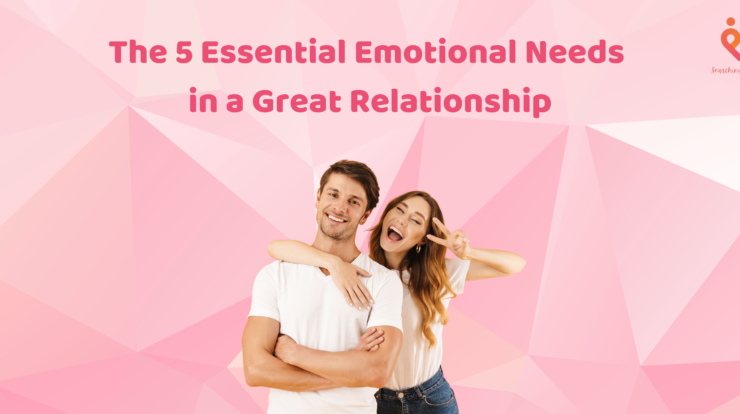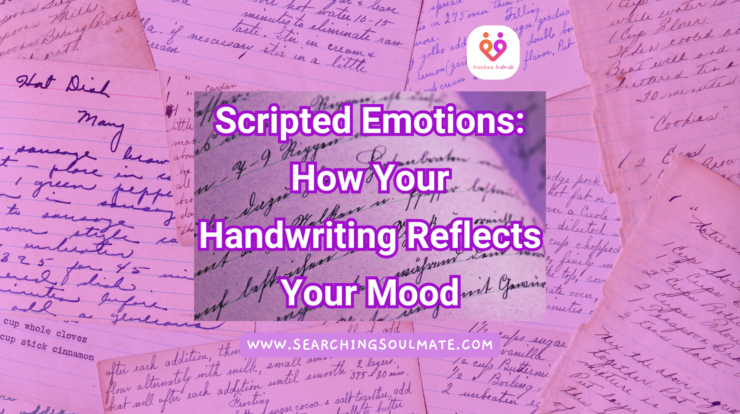
Building a healthy and satisfying relationship is a complex and beautiful journey. It involves more than just shared interests and physical attraction. Emotional needs, often overlooked, play a crucial role in fostering a deep and meaningful connection between partners. Understanding and meeting these needs are essential for creating a fulfilling and lasting bond. In this article, we will explore in detail the five emotional needs that every person seeks in a relationship and the impact they have on relationship dynamics and overall well-being.
Love and Affection: Cornerstones for a successful relationship
Love is the cornerstone of any successful relationship. It encompasses a wide range of emotions and actions that express care, tenderness, and compassion toward one another. Acts of love, such as gentle words, affectionate gestures, and physical touch, create a strong emotional foundation. These acts of affection nurture a sense of security and deepen the emotional connection between individuals. Whether it’s holding hands, cuddling, or saying “I love you,” demonstrating love and affection is vital for emotional well-being.
Love and affection go beyond the initial stages of infatuation and passion. They require intentional efforts to keep the flame of love alive. Engaging in acts of kindness, expressing appreciation, and consistently showing affection are all ways to meet this emotional need. Creating rituals of connection, such as date nights, surprise gestures, and love letters, can further deepen the bond between partners.
Trust and Security: Tools for a better emotional connection
Trust is the bedrock upon which relationships thrive. Feeling secure in a relationship requires open and honest communication, reliability, and loyalty. Trust allows partners to be vulnerable, knowing that their feelings, secrets, and vulnerabilities are safe within the confines of their partnership. When trust is established, it fosters a deep sense of security and emotional well-being. Partners can rely on each other, confide in one another, and navigate life’s challenges with confidence.
Building trust takes time and consistent effort. It involves being true to one’s word, maintaining confidentiality, and being reliable in both big and small matters. Trust is also nurtured through open communication and active listening. By being attentive and responsive to each other’s needs and concerns, partners can build a strong foundation of trust that supports their emotional well-being.
Emotional Support
A supportive partner acts as a pillar of strength during both the ups and downs of life. Offering emotional support involves being there for each other, actively listening, and providing comfort during challenging times. It means creating a safe space where partners can freely express their emotions without fear of judgment. Sharing both joys and sorrows strengthens the emotional bond and creates a sense of unity and understanding. Offering a listening ear, offering advice when needed, and providing reassurance are all crucial aspects of emotional support.
Emotional support is not limited to times of crisis; it extends to everyday life. Being attuned to each other’s emotional states, celebrating successes, and providing encouragement in pursuing personal goals are all forms of support. By demonstrating empathy, compassion, and understanding, partners can fulfill this emotional need and create a supportive environment that nurtures their emotional well-being.
Respect and Validation lead to a more emotionally secure relationship
Mutual respect and validation are fundamental emotional needs in any relationship. Feeling valued, heard, and respected for one’s thoughts, opinions, and boundaries fosters a sense of self-worth and nurtures a healthy emotional connection. Respecting each other’s individuality, appreciating differences, and embracing compromise create an environment of mutual respect. Validation plays a significant role in emotional well-being as it acknowledges and affirms each partner’s experiences, feelings, and perspectives. By showing respect and validation, partners foster a sense of acceptance and strengthen the emotional bond between them.
Respect is displayed through active listening, honoring boundaries, and acknowledging each other’s autonomy. It involves treating each other with kindness, courtesy, and fairness. Validating one another’s emotions means accepting and understanding each other’s feelings without judgment. It is about creating a safe space where partners can openly express themselves and feel heard and understood. By practicing respect and validation, partners can nurture a healthy emotional environment where both individuals feel valued and supported.
Intimacy and Connection
Emotional intimacy goes beyond physical intimacy. It is about sharing deep emotional connections, thoughts, and dreams with one another. Engaging in meaningful conversations, being present, and actively participating in each other’s lives cultivate a sense of closeness. Emotional intimacy creates a space where partners can be vulnerable, trust one another, and be fully seen and understood. Nurturing emotional connection allows for a deeper understanding of each other’s needs, desires, and aspirations, ultimately strengthening the bond between partners.
To foster intimacy and connection, partners must prioritize quality time together. This includes engaging in activities that promote emotional connection, such as sharing hobbies, going on adventures, or simply having deep conversations. Creating rituals of connection, such as regular date nights or engaging in shared interests, helps maintain and strengthen the emotional bond. It is important to create a safe and non-judgmental environment where partners can express their deepest thoughts and feelings, fostering a sense of intimacy and emotional fulfillment.
Understanding and meeting these emotional needs requires ongoing effort, empathy, and communication within a relationship. It is crucial to remember that emotional needs may vary from person to person and can evolve over time. Regular check-ins and open conversations about emotional needs ensure that both partners feel heard, understood, and fulfilled.
By prioritizing love and affection, trust and security, emotional support, respect and validation, and intimacy and connection, partners can create a nurturing and fulfilling bond that withstands the tests of time. Remember, fostering emotional well-being within the relationship is a continuous journey, one that requires active engagement and a genuine desire to create a strong and lasting partnership. By meeting these emotional needs, individuals can create a relationship where both partners feel seen, valued, and emotionally fulfilled, fostering love, happiness, and long-lasting companionship.
Read more blogs here:
- Powerful Ways to Cultivate Workplace Wellness
- Embrace Your Imperfections and Flaws! Self-Acceptance is very important.
- How Can You Practice Self-Love Every Day? Learn Different Ways to empower yourself!






